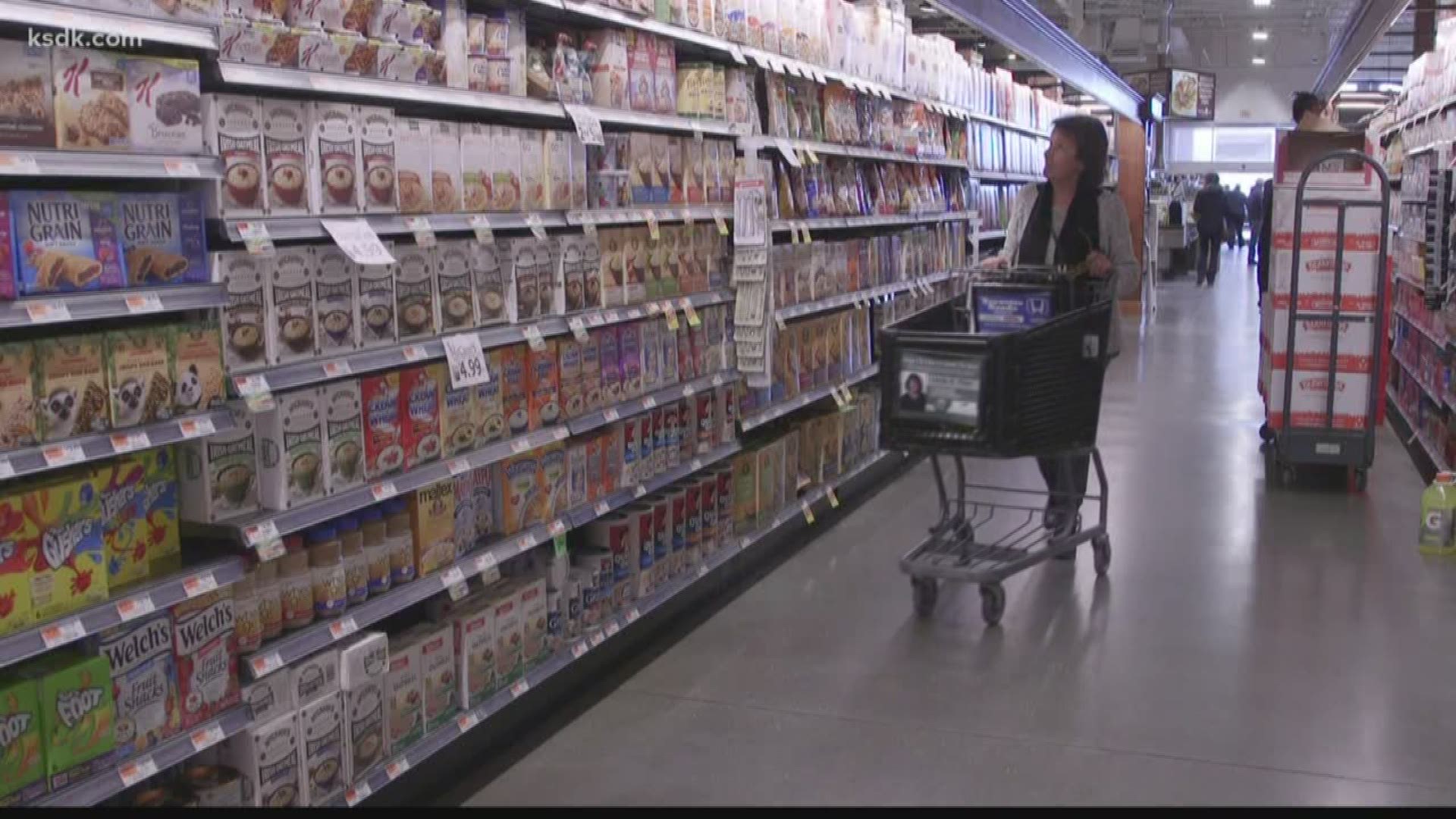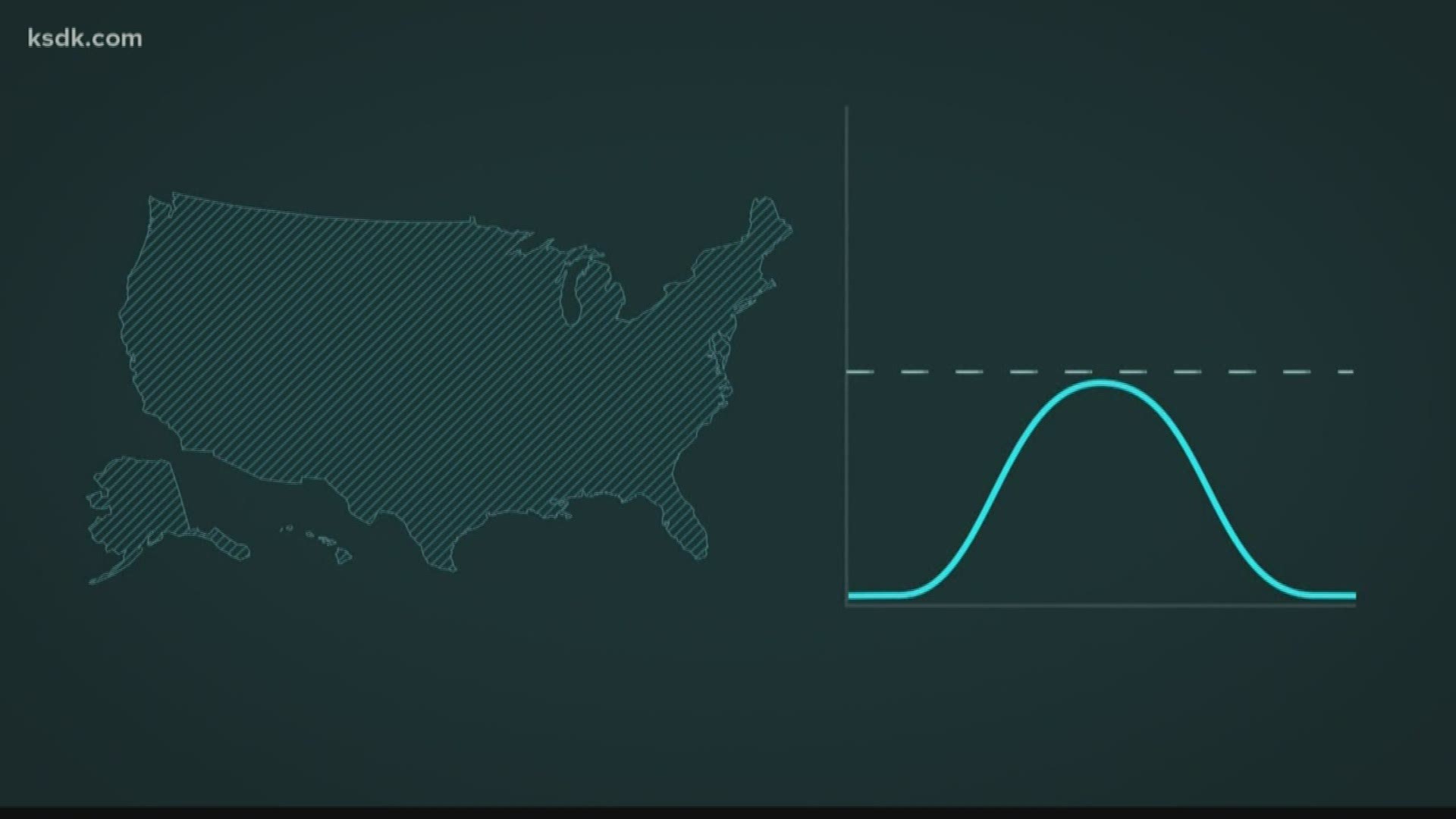ST. LOUIS — With the coronavirus spreading, many Americans are following the government's advice to limit trips out in public. But you may still need to go to the grocery store sometimes to stock up on food. Consumer Reports has some tips on staying safe at the supermarket.
Staying safe starts before you even enter the store. Take some disinfectant wipes from home with you—your store may be out—and use them on the cart or basket while shopping. Bring a rubber-tipped pen to avoid touching checkout screens.
Once inside the store, try to remain at least 6 feet away from other people, which isn’t always easy these days. So try shopping at off-peak hours like early morning or later in the evening. A Google search of your supermarket can show you when foot traffic is the highest.
Ideally, older shoppers should have a neighbor or relative shop for them. But some stores are setting aside early hours for older and vulnerable shoppers, those at a higher risk if they contract the coronavirus.
And if you’re getting groceries delivered to your home, you should order early. With increased demand, delivery may take longer than usual.
Avoid a direct handoff by arranging to have items delivered to your doorstep. You can usually request that option when you order.
Tip electronically rather than giving cash to avoid touching money and hands.
And when picking up prepacked groceries, open the car door yourself to avoid surface contamination.
The Food and Drug Administration says there's no current evidence to support the idea that the virus can be spread by handling food packaging. But if you're concerned, it can't hurt to wipe down nonporous containers like jars or cans with disinfectant wipes.
After unpacking groceries, wash your hands and wash down surfaces that you’ve touched.
Finally, Consumer Reports says to get in the habit of washing your hands vigorously several times a day for 20 seconds. A good tip? Pretend there’s something sticky on them that you’re trying to rub off.
More coronavirus coverage:
RELATED: Advocates for people with disabilities worried about health care rationing during COVID-19 pandemic


